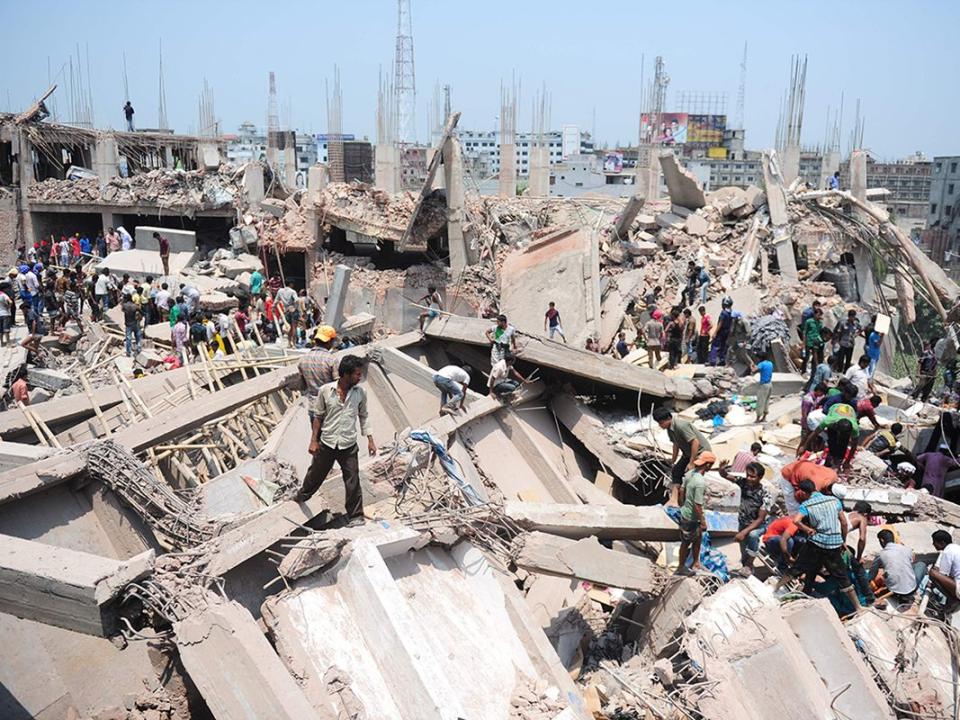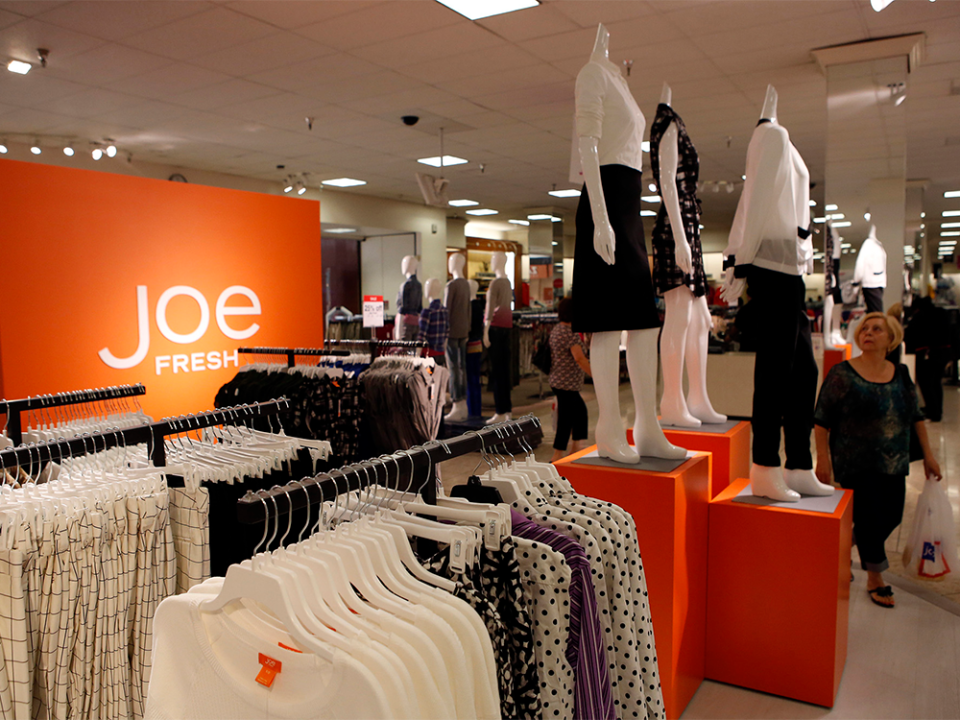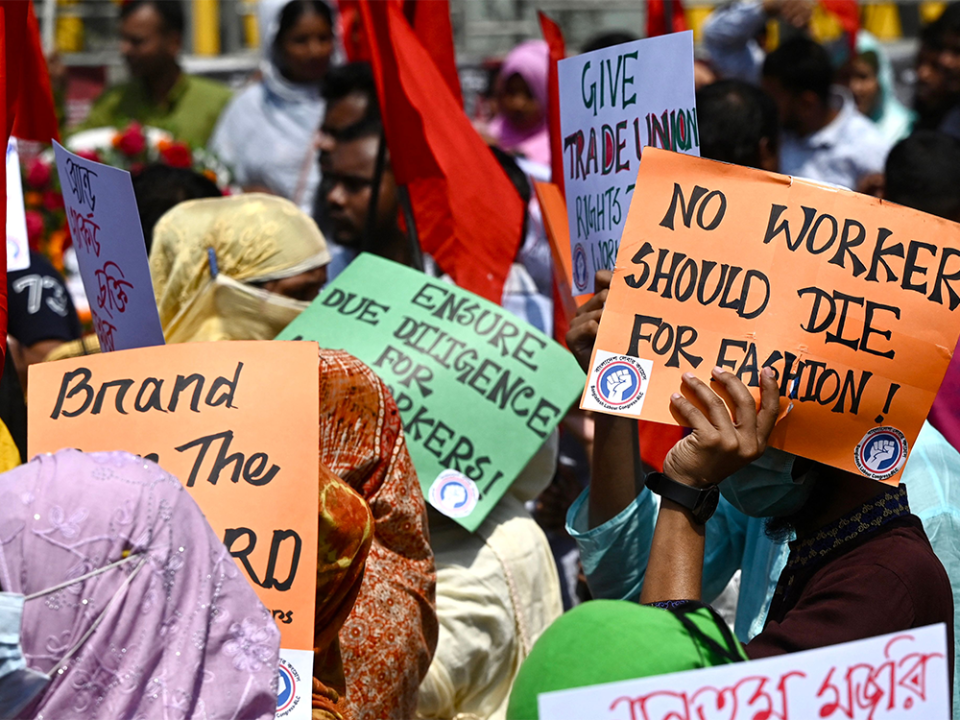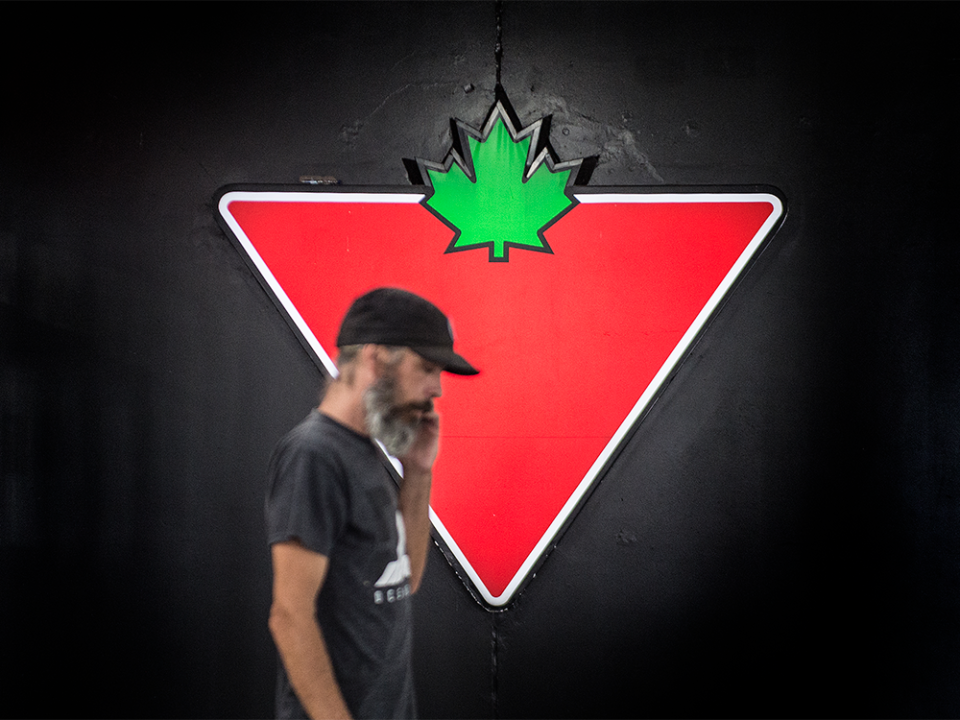Canadian companies still failing on garment workers' rights, 10 years after Rana Plaza collapse

Canadian companies need to pay more to ensure the global fashion industry is sustainable and workers in their supply chains receive fair wages, unions and manufacturers said on the 10th anniversary of a factory collapse in Bangladesh that killed more than 1,100 people and injured twice as many.
Safety features in clothing factories have vastly improved since the April 24, 2013, collapse of the Rana Plaza building, which included factories that produced clothes for big brands such as Loblaw Cos. Ltd.’s Joe Fresh, Bangladeshi workers said, but they’re still struggling to make ends meet due to “poverty-like” wages.
“Everyone knows how much workers are paid and how much brands sell their clothes for,” Kalpona Akter, executive director of the Bangladesh Center for Workers Solidarity, said. “This is not rocket science. But at the end of the day, brands shamelessly enjoy the bigger piece of pie.”
The Rana Plaza collapse in Bangladesh, the world’s second-largest exporter of clothes after China, occurred because of a structural fault and was the industry’s biggest disaster. Since then, companies have been pressured to be more transparent about where they source their clothes from.
Many clothing companies, factory owners and workers also entered a legally binding factory safety deal called the Accord, which the industry said has vastly improved safety in Bangladesh over the past decade. The Accord has made thousands of inspections and banned unsafe factories from supplying their buyers, helping to make some 1,600 factories safer for about two million workers in Bangladesh, labour activists said.
About 200 companies agreed to the Accord back in 2013, but few Canadian companies — which includes Loblaw — signed the agreement. As the deal branches out from Bangladesh and becomes international, worker representatives are urging more Canadian companies to sign on.

“The Accord is proven. If (Canadian companies) aren’t signing these, they are spoiling their own image,” Akter said. “They are essentially jeopardizing the lives of workers. What can be a bigger shame than this?”
A number of companies have instead opted to sign agreements that aren’t legally binding, which gives them a way out, Guillaume Charbonneau, head of the Global Affairs and Workplace Issues Department at United Steelworkers (USW), said.
He said Canadian clothing companies need to be more transparent about their supply chains. Despite the lack of transparency, he said his team’s research shows that some employees who make clothes for Canadian companies are still not paid living wages and they also face issues about forming unions and freedom of association.
In November, the USW filed a complaint with the Canadian government over allegations that Canadian Tire Corp. Ltd. refused to pay a living wage to thousands of workers in Bangladeshi factories that make clothes the retailer sells under its Denver Hayes, Dakota, WindRiver and Helly Hansen labels.
The complaint is still being processed, but Canadian Tire denied the allegations and said it follows local laws and regularly tracks what its suppliers pay their workers. Canadian Tire did not respond to a request for comment.

Activists in Canada are also pushing a bill introduced in March 2022 by two federal New Democrats that would make companies more accountable for human rights abuses and environmental harms abroad. Bill C-262 would create a legal avenue for victims of human rights violations working for Canadian companies outside of the country.
Thea Lee, deputy undersecretary for the United States Department of Labor, said the pricing issue was the “next frontier” that needs to be tackled now that factory safety concerns are in relatively better shape.
“Brands can’t just impose requirements without also being willing to pay a price. That’s not tenable,” she said.
Faruque Hasan, president of the Bangladesh Garment Manufacturers and Exporters Association, hopes more Canadian clothing companies buy from the South Asian nation, which is already Canada’s second-largest source of garments.
He said many Canadian companies were worried after the Rana Plaza disaster, but added that the Bangladeshi industry is a lot more mature, and it can even compete with China when it comes to prices.
“When we first started the garment industry, it was unplanned. Factories were built mostly in residential or commercial areas,” Hasan said. “Today, we are shifting to industrial areas outside of Dhaka (the capital of Bangladesh). The mindset of owners has completely changed. They realize that if something goes wrong, they will be held accountable.”
He hopes companies such as Lululemon Athletica Inc., which he said currently sources “low-end” products from Bangladesh, deal in higher-value products. Lululemon did not respond to a request for comment.

Hasan said Bangladesh has done its duty by listening to company recommendations and improving safety. In return, he wants clothing companies to pay higher prices for their products and do more business with the country. Even an increase of 50 cents per clothing item can make a huge difference for workers, he said.
Hasan also said companies have had plenty of discussions with factory owners when it comes to safety, because “they know that if there is an accident in the factory they are buying from, they will be impacted,” but “they don’t talk much” when it comes to increasing the prices they pay.
Akter, meanwhile, is focused on higher wages and better living conditions for workers which, according to studies, still require plenty of work.
More than half of the 200 Rana Plaza survivors that ActionAid interviewed are currently unemployed. The charity’s study suggests that physical and mental health issues continue to be a significant barrier for employment for many survivors.
More than 90 per cent of the 200 workers interviewed for a separate study by ActionAid expressed concern about their health and ability to work in the long run. The minimum wage for workers in Bangladesh works out to the equivalent of $104 annually.
Akter hopes to change this scenario in the next five years and said she needs Canadian companies to make it happen.
Foreign companies farming out hiring can't dodge employee liability
CEO's 'pity city' rant on bonuses puts executive pay in focus
“I am fighting for a job with dignity,” she said. “After five years, I want workers to have a dignified job that ensures a living wage, and are free to exercise a freedom of association and have social protection.”
• Email: nkarim@postmedia.com | Twitter: naimonthefield

 Yahoo Finance
Yahoo Finance 